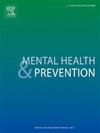A mentalization-based parenting intervention (Lighthouse Parenting Programme) for parents with various mental disorders in adult mental health service: A feasibility study
IF 2.4
Q2 Medicine
引用次数: 0
Abstract
Objective
Parental mental health problems have a detrimental impact on parenting thereby affecting the development and mental health of the child. Despite the clear need for parenting support within adult mental health services (AMHS), few interventions have been developed and evaluated in this context. The Lighthouse Parenting Program is a mentalization-based intervention aimed at reducing stress related to parenting, improving caregiving abilities, thereby preventing child adversity. This feasibility study aimed to investigate the feasibility and acceptability of the Lighthouse Parenting Program, including recruitment, enrolment, retention, and acceptability of the program in AMHS for parents with mental disorders.
Methods
Seven parents with various mental disorders were included. The intervention consisted of an individual assessment session, followed by 12 parenting group sessions. Data were collected using data from an e-journal system and via semi-structured qualitative interviews conducted post-intervention.
Results
70 % of the referred parents were included in the study, indicating good recruitment. The program demonstrated good feasibility, with six out of seven parents completing the program and an average session attendance of 77.5 %. Qualitative findings showed that parents experienced enhanced awareness of mental states, increased self-compassion, and greater parental confidence. However, parents also described initial challenges with trust-building within the group and challenges related to a perceived lack of structure and clear goals in the program.
Conclusion
The preliminary findings suggest that offering a mentalization-based parenting program as a transdiagnostic intervention is both feasible and acceptable to parents with mental disorders in AMHS. Potential areas for improvement are discussed. These findings warrant further investigation in randomised clinical trials to establish the effectiveness of the program.
在成人心理健康服务中,以精神化为基础的父母教养干预(灯塔教养计划):可行性研究
目的父母心理健康问题对养育子女产生不利影响,从而影响儿童的发展和心理健康。尽管在成人心理健康服务(AMHS)中明显需要育儿支持,但在这方面制定和评估的干预措施很少。灯塔育儿计划是一项以心理为基础的干预,旨在减少与育儿有关的压力,提高照顾能力,从而防止儿童陷入困境。本可行性研究旨在探讨灯塔育儿计划的可行性和可接受性,包括该计划在AMHS中对精神障碍父母的招募、注册、保留和可接受性。方法选取7名有不同精神障碍的家长。干预包括一次个人评估会议,随后是12次家长小组会议。通过电子期刊系统和干预后进行的半结构化定性访谈收集数据。结果70%的转介家长被纳入研究,表明招募情况良好。该计划显示出良好的可行性,7位家长中有6位完成了该计划,平均出勤率为77.5%。定性研究结果表明,父母对心理状态的意识增强了,自我同情增加了,父母的信心也增强了。然而,家长们也描述了在小组中建立信任的最初挑战,以及与项目缺乏结构和明确目标相关的挑战。结论初步研究结果表明,提供以心理化为基础的育儿方案作为一种跨诊断干预,对AMHS精神障碍家长是可行和可接受的。讨论了可能改进的领域。这些发现值得在随机临床试验中进一步调查,以确定该计划的有效性。
本文章由计算机程序翻译,如有差异,请以英文原文为准。
求助全文
约1分钟内获得全文
求助全文
来源期刊

Mental Health and Prevention
Medicine-Psychiatry and Mental Health
CiteScore
2.10
自引率
0.00%
发文量
22
审稿时长
24 days
 求助内容:
求助内容: 应助结果提醒方式:
应助结果提醒方式:


